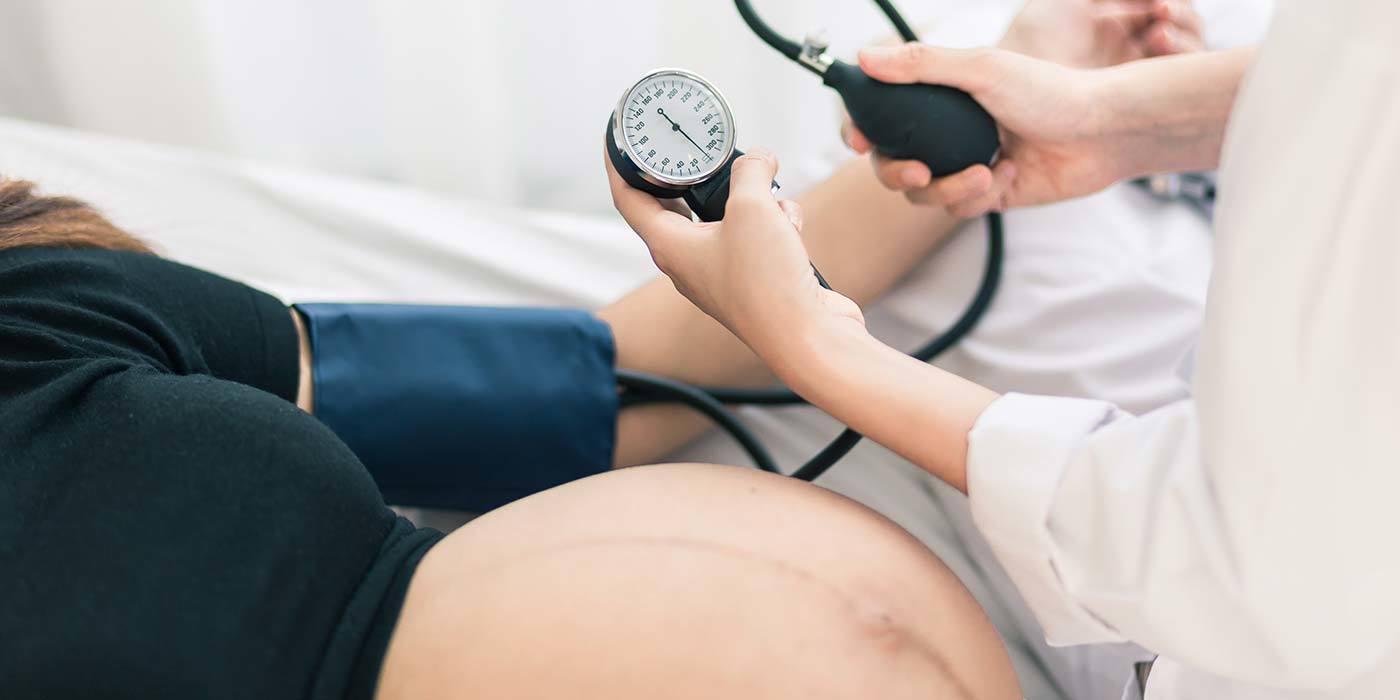
- December 20, 2022
- Comments: 0
- Posted by: Dr. Anushri Shah

Pregnancy is one of the most exciting and rewarding times in your life. However, it can also be a bit stressful. There are several complications during pregnancy, but one of the most common is preeclampsia. It is a condition that arises after 20 weeks of gestation or later, and it can be a serious threat to both mother and baby. Not only is preeclampsia a worrisome issue for expectant mothers and their unborn children, it is also a major women’s health concern. This blog post will discuss the causes, symptoms, prevention, and treatment of preeclampsia.
What is Preeclampsia During Pregnancy?
A condition called preeclampsia can develop during pregnancy. It is characterized by high blood pressure, protein in the urine, and swelling in the hands and face. This condition can make it difficult to carry out daily tasks. Preeclampsia can also lead to other complications such as eclampsia, seizures, and kidney damage. It is important to know what preeclampsia is, what causes it, and how to prevent it.
What is Postpartum Preeclampsia?
Rarely, a woman who has just given birth may develop high blood pressure. Postpartum preeclampsia is the medical term for this condition, which can develop a few days to a few weeks after delivery. Preeclampsia is characterized by high blood pressure, protein in the urine as well other symptoms.
What are the Main Preeclampsia Causes?
As a pregnant woman, it is important to be aware of preeclampsia’s symptoms/causes during pregnancy & go for a preeclampsia diagnosis without further delay. The following are some main causes of preeclampsia.
– High blood pressure
– Genetic tendency
– Auto-immune diseases
– Insufficient blood flow
– Diabetes
– Obesity
What are the Stages & Symptoms of Preeclampsia
Preeclampsia is a condition that is commonly referred to as a pregnancy complication. The preeclampsia symptoms can vary depending on the individual. Additionally, preeclampsia may develop without symptoms, but there are some signs and symptoms that may help you diagnose preeclampsia.
Stages of preeclampsia during pregnancy
– Mild preeclampsia: high blood pressure, proteinuria, and water retention
– Severe preeclampsia: preeclampsia headache, blurred vision, light sensitivity, fatigue/nausea/vomiting, abdomen pain, breathing difficulties, and slow blood coating process.
Other preeclampsia symptoms & signs:
– Excess protein in your urine (Proteinuria)
– Signs of kidney problems
– Severe headaches
– Headaches
– Visual disturbances
– Nausea & dizziness
– Excessive swelling
– Upper abdominal pain,
– Thrombocytopenia (Low platelet counts in the blood)
– Impaired liver function
– Shortness of breath
Contact your doctor immediately if you experience any rare or unusual preeclampsia symptoms/signs & get the right preeclampsia treatment to ensure a smooth & safe pregnancy journey.
What are the Preeclampsia Risk Factors in Pregnancy?
There are some risk factors of preeclampsia that women may face during pregnancy;
– A first-time pregnancy
– A history of preeclampsia or gestational hypertension
– Women whose sisters and mothers experienced preeclampsia
– Women carrying multiple children.
– Females older than 40 and younger than 20
– Women with high blood pressure or kidney concerns
– Females with a body mass index (BMI) of < 30 or higher
What are the Prevention tips for Preeclampsia in Pregnancy?

Although there are no guaranteed prevention tips for preeclampsia in pregnancy. Preeclampsia has been linked to high blood pressure, which can be controlled. So here are some tips on preventing preeclampsia during pregnancy.
– Join pregnancy yoga classes
– Follow a well-balanced diet program
– Enroll in the pregnancy care program
– Go for a daily walk
– Stay hydrated
– Consume less salt
– Overlook fried/junk foods
– Opt for healthy craving options
– Get enough rest
What If Preeclampsia During Pregnancy Left Untreated?
As we know, preeclampsia is a common complication during/after pregnancy. Hence overlooking any pregnancy complications may harm the mom & foetal health. Here are a few preeclampsia complications to look at.
– HELLP syndrome ( Hemolysis, elevated liver enzymes, low platelet count)
– Poor blood flow to the placenta
– Placental Abruption
– Eclampsia
– Foetal growth concern
– Kidney failure
What’s in the Conclusion?
Preeclampsia is a serious condition that can develop anytime during/after pregnancy. It can cause high blood pressure, swelling, and protein in the urine. It can also cause a dangerous condition called HELLP syndrome, which is a condition that causes low blood pressure, seizures, and organ failure.
If you detect any abovementioned symptoms, you should consult your health specialist right away. Preeclampsia can be treated in a number of ways. Discuss your preeclampsia treatment with your doctor.
Divine Mother is a leading women’s health care centre in Ahmedabad, Gujarat, India, offering complete care and support. No matter, whether you’re looking for pregnancy yoga classes, relaxing pregnancy massage therapy, or in search of more information, we’ve got you.

